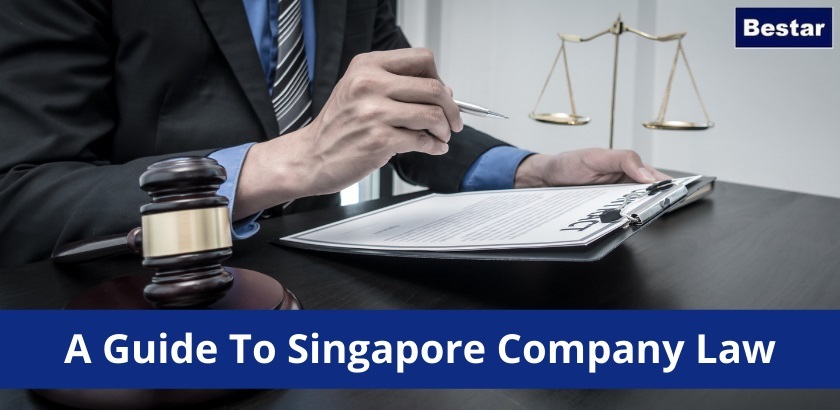Singapore policies insist that the company is required to follow certain rules when they undergo the process of incorporation. All the companies that register in Singapore need to follow the correct process.
Therefore, it is necessary for an entrepreneur to understand the Singapore Company law. This enables the entrepreneur to handle all the procedures to incorporate a company in Singapore. The article we have curated here helps you understand the Singapore company laws for an easy understanding of the process.
Registering Singapore Company:
Under the Singapore Company Law, it is necessary for you to submit all the necessary documents. Along with it, you have to pay all the necessary fees for the procedure as per ACRA’s (Accounting and Corporate Authority of Singapore) suggestion.
These include Memorandum and Articles of Association (M&AA). These documents have all the company regulations that offer an understanding of government provisions. The M&AA should provide information like company name, share capital amount, etc., if the company members liability is unlimited or limited.
If there happens to be a conflict within the memorandum and articles, the former is generally considered.
Types of Business Ownership:
You could be incorporating various types of companies and they could be either private or public. But generally, the company formation is dependent on the extent of its members’ liabilities.
The most commonly found type in Singapore is an LLC company. LLC stands for Limited Liability Company. It is when the liability of the members is secured by a guarantee or shares. Apart from this, there are unlimited companies too.
Results of a Company Registration in Singapore:
The basic result of company registration in Singapore is that the company happens to be a corporate body. This company/corporate body holds the power to sue someone. The vice versa is also possible. After all, the company can go on forever, with an indefinite survival.
The company loses its existence only if it shuts down. Additionally, the members get limited liabilities if the company shuts down. During the process of incorporation, the company defines a personality. But the existence of the company is considered separate from the company members.
This brings out a most important result – the debts and obligations thus incurred will be owned by the company. The company members are not liable for these debts/obligations. In such cases, the company creditors can ask only for company debt payments. If the company does not have any debts to handle, the credits will bear the losses.
Power and Company Rights:
The rights and power of the company are legalized under the Companies Act Provision, the memorandum, and articles. Therefore, no one can contest these powers and rights. The legal personality has a specific set of rights.
These include the ownership of the property, to sue or be sued, keep the identity alive even in the case of change of the membership. They can also enter or exit the contracts while separating from the participants.
The management of the company is decided by the board of directors. They ensure that the company follows these laws while they protect the interest of their company’s shareholders.
Lifting the Corporate Veil:
We defined that the company’s personality is different from the members of the company. But sometimes, the legal bodies consider the two things as one. For instance, the court may hold the company members accountable and liable for the debts incurred by the company.
This implies that the court holds the power to lift the veil of incorporation by common law or statute incorporation.
The rights and responsibilities the shareholders have:
All the shareholders of the company have specific rights under the Companies Act. Shareholders are not considered members. Therefore, they cannot exercise membership rights and are also not subject to member liabilities. A person can choose to be a member during the incorporation process.
But members have to ensure that the memorandum and articles are strictly followed. These members should be able to do the following:
- Access the company’s finances and relevant records.
- Attend and cast their vote during the meetings.
- Circulate general meeting calls.
- Offer fair treatment.
It must not be forgotten that the company’s assets are owned by the company as the company holds its own legal identity. The shareholders can slap a legal suit against the company if they find a breach in the activities.
Statutory Duties:
The directors of the company are company trustees and they are obliged towards fiduciary duties towards the company. In addition to this, the Act promotes specific obligations on directors that show the general requirements under the law.
One important arrangement in section 157(1) supports an executive continuously acting sincerely and using sensible determination in releasing office obligations. Section 157 (2) of the Act provides that an officer cannot make unnecessary data utilization because of their position rights as an organization specialist.
This section also covers picking up, by implication or deliberation, over what preferences he has. But section 157 is not a detailed guideline that identifies the responsibilities an executive has, towards the company. This section states that statutory commitments are obligatory.
Also, the responsibilities at a custom-based law can manage provision by having a settlement within the organizations.
Powers and Duties of a Director:
The directors are part of the company’s routine activities and events. Therefore, it is understood that the director is at least 18 years old or more. It is understood that they carry a healthy mindset and are Singapore residents. Their basic responsibility is to apply honesty to all their actions and duties.
Detachment from Ownership and Management:
The law shows that the matters of the organization can be overseen by the company chiefs. Therefore, they can exercise all the organization forces apart from any powers of the act.
Conclusion:
These are the most important things you should know while understanding Singapore Company Law.


